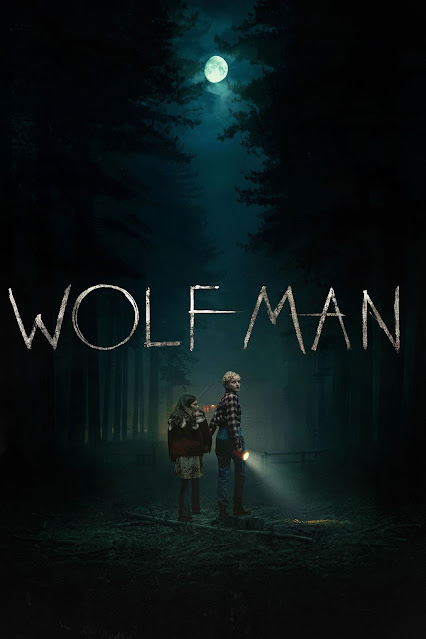Jaws:
A 50 Year Retrospective
1984
Director- Steven Spielberg
Cast- Roy Scheider, Robert Shaw, Richard Dreyfuss, Lorraine
Gary, Murray
Hamilton
The 1970s
produced many films that deeply effected pop culture, and the popular
consciousness, of the world. The Godfather put the phrase “make you an offer
you can’t refuse” into the popular lexicon. Saturday Night Fever made stars out
of the Bee Jees and pushed disco into the forefront. Enter the Dragon introduced
both Bruce Lee and the martial arts genre to legions of mainstream movie goers
who would have otherwise been ignorant of both. The Exorcist terrified millions
and helped begin the Satanic Panic that grew to full strength in the next
decade.
Smokey and
the Bandit, Grease, Apocalypse Now, Superman, Rocky, (and the Rocky Horror
Picture Show), and Alien are all products of the 70s and each had a profound impact
on culture in general and movie making in specific. But of all the films from
that decade, only Star Wars could be said to have had a greater impact on the cultural
zeitgeist than Jaws. Only Star Wars could be said to have had a greater impact
on movie making than Jaws.
Jaws is
turning 50 years old. A half century is a long time for any movie to remain
relevant much less popular. Today, movies receive copious amounts of publicity
during Oscar season, their accompanying celebrities making the media rounds,
and a year later no one remembers most of those films, much less talks about
them. So how is it that Jaws maintains such a prominent place in our minds,
five decades after its premiere.
The Effect on the Movie Industry
Before
Jaws, the trend for most movies was to be released in a few theaters and then
released to a gradually increasing number over the weeks that followed. This
was intended to capitalize on the effect of positive critical reviews and audience
word of mouth. In a time before the internet, getting word out to a large
audience was both problematic and expensive so time was expected to do both.
Wide releases were reserved for films that weren’t expected to do very well
(that way they could make as much money as possible before word of the film’s
poor quality had time to spread).
Jaws had received
such positive audience reaction in test screenings that the studio opted to
buck their usual trend and go for a wide release (for its time) of almost 500
theaters in its opening weekend, and they spent the money to promote it. Their
gambit paid off. Jaws cost them $9 million to make and it brought in $100
million in its first 2 months (it should be noted that only the absolutely most
profitable movies stay in the theater for 2 months today). It spent 3 consecutive
months as the number one film in America and its initial theatrical run brought
in $123 million, almost 14 times as much as the film cost (it received another theatrical
run in 1976 and again in 1979 upping that total by another $10 million). And
these were just the American numbers. The film began circulating worldwide in
December of 1975 and broke records everywhere (again we must remember this was
before the internet where a film can be spoiled or outright stolen mere minutes
after its release).
Over the years, across multiple
releases, the film has made almost half a billion dollars. The effect on the
studios was instantaneous. Not only did they see the value of a wide release
and its accompanying media blitz, they saw the value of a summer release as a
prime money making opportunity (before Jaws, winter was thought to be the most
profitable season). The modern day summer blockbuster wouldn’t exist without
Jaws.
Of course, one negative aspect of this vast pay off was that every studio wanted its own golden goose, it’s on Jaws. Hollywood has always been a business, but being profitable wasn’t sufficient, movies needed to be blockbusters! This financial lust was increased a few years later by the global domination of Star Wars. The modern day trend of spending hundreds of millions in the hope of making a billion, can be laid squarely at the feet of Jaws and Star Wars.
The Effect on Popular Culture
It wouldn’t
be accurate to say that Jaws caused mass hysteria. It would, however, be
accurate, to say that Jaws caused a mass anxiety. In the same way that Psycho
created fears about taking a shower, Jaws created widespread fears about getting
in the ocean in general and sharks in particular. A morbid fascination with
sharks appeared that is still with us today.
The news reports
anytime, nationwide, that someone is “attacked” by a shark even though these encounters
rarely result in serious injury and even more rarely result in death. This is
worth noting because our mass media doesn’t treat other animal encounters this
way. Literally thousands of people are bitten by venomous snakes in the United
States every year, yet these rarely make even the local news. And you are exponentially
more likely to be killed by insect stings than a shark attack, yet news of a
wasp sting won’t even make it down the street much less across the country. After
a shark “attack”, news shows will air pieces about what you should do if you encounter
a shark. It would save many more lives if they did a segment on avoiding
mosquito bites, but the fear of shark attack seems to connect to us on a
primal, instinctual level.
If you think
about it, a shark bite really shouldn’t qualify as “news”. Sharks live in the
ocean. When humans go into the ocean, an encounter with a shark should seem
like a possible outcome. In other words, a shark attack at the mall, now that would
be news, but a shark attack in the ocean not so much. But if a surfer in
California gets a bite on the leg, people from South Dakota to Alabama will
hear about it. This morbid fascination began with Jaws.
Besides
creating an anxiety about sharks, Jaws served as a good reminder of our
perilous place in nature. Now, Jaws did not create animal horror. The Birds
(1963) and Willard (1971) are great examples of nature horror that preceeded
Jaws (not to mention Moby Dick). The 1970s are filled with movies of humans vs nature
(frogs, bees, bears, worms, rats, pigs, rabbits, whales, snakes, dogs, bats,
ants, and spiders all received horror movies in the decade). But even a cursory
review of the nature horror genre will reveal that sharks exponentially
outnumber the rest in cinematic appearances. That can be attributed to Jaws.
So all of
these things explain the importance of the film, but they don’t explain
why the film is still popular and having an impact all these decades later.
The Appeal of Jaws
Right off I should point out
that there are a lot of differences between Jaws the movie and the Peter
Benchley novel that it was based on. I’m talking now strictly about the film. The
appeal doesn’t lie in the plot, which could be summed up in one sentence as “3
men set out to kill a shark that is stalking a coastal town.” There is no twist
ending. The movie is exactly what you think it’s going to be.
The special FX, likewise, aren’t
the key to its success. The mechanical shark, brilliantly constructed, looks
good but it doesn’t look great. Certainly, George Lucas created much more
convincing FX just a few years later in Star Wars.
The appeal isn’t the story but how its presented. This starts with John William’s score at the beginning of the film. John Willaims is the most recognizable film composer ever. It probably wouldn’t be an exaggeration to say that modern audiences are more familiar with his works than those of Mozart or Beethoven. Star Wars, Raiders of the Lost Ark, Jurassic Park, and Superman all feature moving overtures. Jaws on the other hand begins with just a few simple notes, played over and over, building in volume and tempo. A true mark of its elegant genius is that people who have never seen Jaws immediately know the theme when they hear it. Marketing firms spend millions of dollars trying to create commercial jingles that don’t achieve a fraction of the cultural penetration of the theme from Jaws.
Spielberg also does a
tremendous job of slowly building tension in the film, not showing too much too
quickly and leaving a lot to our imagination. Most of the techniques that he
used in Jurassic Park (for example, seeing the reaction on the character’s face
before we see what they are reacting to) he first used in Jaws.
The real appeal of Jaws though
is in its characters and themes which are timeless.
There are
four prominent characters in Jaws: Brody, the everyman police chief who is the
first to realize the true nature of the horror stalking the town; Hooper, a
young oceanographer assisting the chief in his investigation; Quint, an aging fisherman
willing to hunt down the shark; Vaughn, the mayor of the town that’s trying to
keep the nature of the horror a secret lest a panic ruin the town’s financial success
during tourist season. Timeless themes are explored through the interaction of
these characters.
The Themes of Jaws
Generational
and Class Conflict
Hooper
and Quint are the only two characters who have an inherent understanding of the
threat that they are facing though they are approaching it from different
points of views. Hooper is a young man representing education but also wealth
and privilege. Quint is a much older man
representing experience but also blue-collar values. Brody, the everyman, has
to be the common sense peace maker between the two, bridging education and
experience so that the problem can be solved.
Abuse of Power and the Burden of Responsibility
Audiences
in 1975 would defiantly have seen a parallel between Mayor Vaughn, covering up
the truth about the shark, and the Watergate scandal that had shocked the
country a few years earlier. But Vaughn could very easily be any politician, painting
the grass green and telling people that there is nothing to worry about even as
evidence to the contrary mounts. Global warming, pandemics, and artificial
intelligence are all modern day problems that politicians typically downplay
despite the prevalent warning signs.
Jaws ,though,
doesn’t take the low road of “us vs them:” or “don’t trust the government.” It
presents a more nuanced view. It could easily be argued that Vaughn is the real
antagonist of the film because if he had supported Brody, no one else would
have died after the initial victim. But Vaughn is burdened with the responsibility of
the town’s well being and is willing to delude himself and hope that the
problem goes away. Brody, as the police chief, also represents “the system” and
seems eager himself to believe that the danger has passed until Hooper
convinces him otherwise.
The Consequences of Hubris
A
theme that Spielberg would explore more fully in Jurassic Park is the danger of
believing that we can control nature and our unshakable belief that our
knowledge is complete and therefore infallible. Hooper and Quint know the truth
and despite their expertise, Mayor Vaughn ignores them both. But even Hooper
and Quint are so convinced that their way is best that neither man is willing
to respect the expertise of the other until desperation leaves them no other
option.
Conclusion
Jaws
has attained a prominent place in popular culture with its exploration of
timeless themes and its masterful execution. If you’re like me, its become
mandatory summertime viewing. But if you haven’t seen it, or you haven’t seen
it in years, set aside 2 hours this summer and witness a truly important film
that changed culture and film making forever.









































.jpg)












